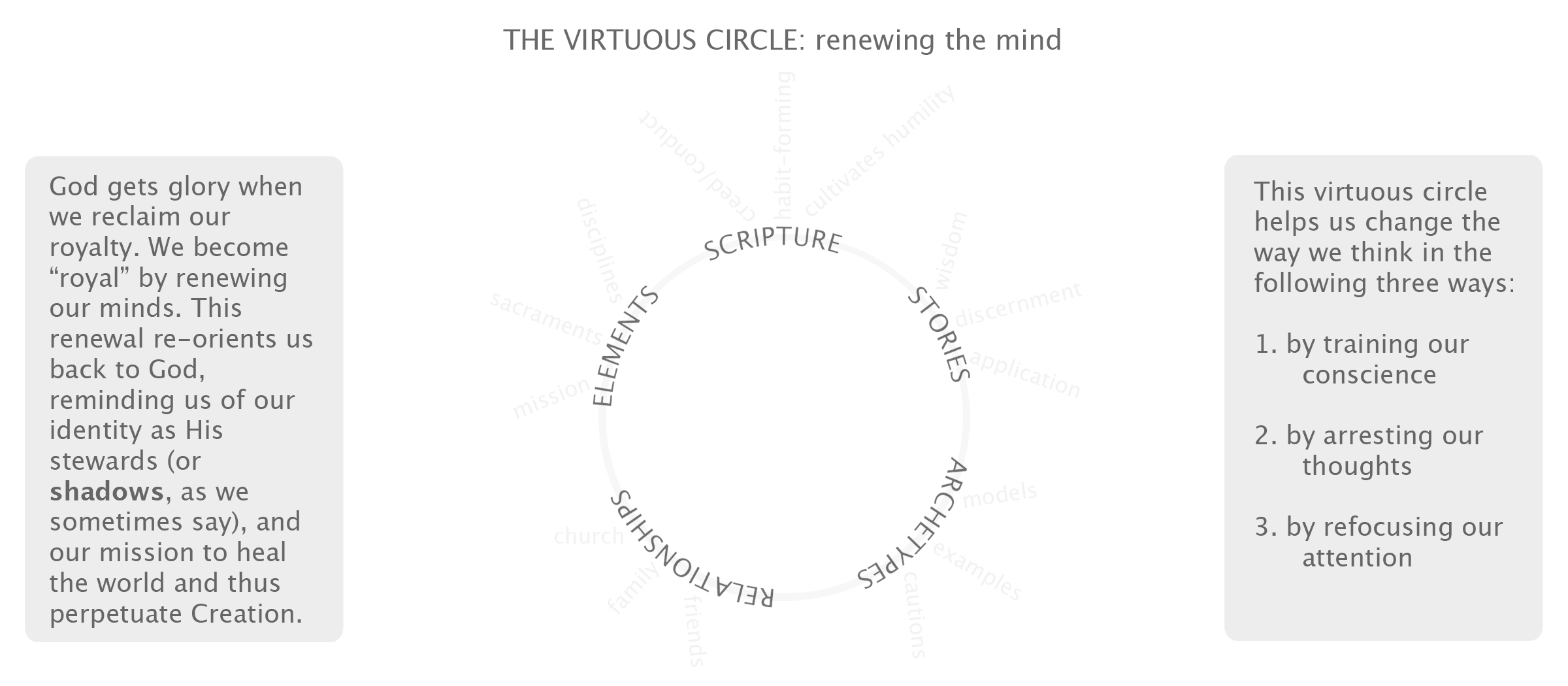To recap the previous two posts, the virtuous circle is comprised of scripture, stories, archetypes, relationships, and the elements. Regardless of where you experience the most success or the ways in which you see any one of those five components feeding in and building off the others, the point remains that our minds are renewed through these activities.
The virtuous circle trains our consciences, teaching us how to think Christianly. The virtuous circle helps us to arrest our thoughts, “demolish arguments and every pretension that sets itself up against the knowledge of God, and take captive every thought to make it obedient to Christ.” (2 Corinthians 10.5)
Lastly, the virtuous circle helps us to refocus our attention. We have to focus on what God wants, not what we want, selfishly. Once we start to put the virtuous circle into practice, our thoughts begin to change, and our lives change as a result. We reclaim our “royalty” and as a result God gets glory.
We become more fully human as he becomes more wholly glorified.
Questions for Further Reflection
- Have you encountered Christians who know very little about Jesus, but act as if they know everything? How did you respond? Have you ever been that person?
- Are there things in the Bible that make you uncomfortable? Why?
- What are some stories you’ve learned the most from—books, movies, plays? What was it about these stories that stuck with you?
- Who are the people who fulfill archetypes in your life—models of how to live or examples of how not to live? What can you learn from these people?
fossores
Related posts
Categories
Category Cloud
Tag Cloud
Recent Posts
- Victors and Victims November 6, 2018
- 3 Hacks for Happiness October 29, 2018
- Hope Against Death September 20, 2018
- The Shape Of The Cross September 19, 2018


